
The ever-expanding universe of mobile and web apps is fascinating. The number of smartphone users globally will reach a staggering 3.8 billion by 2021 and going by the looks of this trend, this number will continue to grow in leaps.
This is great news for startup founders looking to develop their app and join the mobile-first revolution.
There are many benefits of having an app for your product, but here’s the one you will find the most interesting – since 2015, the consumer app spending industry has grown by a whopping 120% and is expected to reach $156 billion worldwide by 2023.
Now is the time to launch your startup, build your app, make money and grow your business!
It is easy to get excited by these figures and stats, and even easier to dive straight into the process of app development, but an easy choice doesn’t always equal to a smart choice.
What’s actually smart is to first understand what ‘type’ of app is best suited for your startup and how it will help you reach your marketing, revenue, and other goals.
Typically, the choice lies between these two types of apps –
- Mobile Apps and
- Web Apps
The Question Is – Should You Build a Mobile App or a Web App for your Startup in 2020?
Choosing between mobile and web apps isn’t easy, and we understand that. To save you the time (and trouble), we have done the research and compiled it in our comparison guide.
Our in-depth guide will help you navigate through the process of choosing between native and web apps and making the right choice in the end.
Be prepared, because once you’re done reading this, you will be more informed and aware for making the right choice between mobile and web apps.

Ready to find out which road to take?
Let’s begin with the basics first.
What are Mobile Apps and Web Apps?

Mobile Apps: A mobile app (also referred to as a ‘native’ app) is the one that is built specifically for an OS (operating system) and is installed directly on your phone’s storage. Users have to download a native app by going to the respective app stores for iPhone, Android or Windows, etc.
Typically, native mobile apps are built OS-agnostic i.e. an app made for Apple Store will not work on Google Store and vice versa. However, it is common practice for app developers and startups to develop a separate native app for each OS (operating system).
Examples of Native Mobile Apps – Uber, Facebook, Instagram, Evernote.
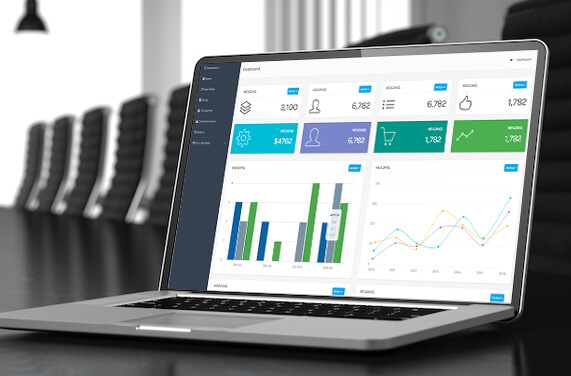
Web Apps: A web app is the one that is built to work and function on any mobile operating system. It is not directly installed onto your phone’s storage but is browser-based i.e. you have to log on to a website to access a web app.
Typically, web apps are built for multiple browsers for each operating system i.e. Safari for iOS and Chrome for Android and so on. Users don’t need to install a web app, as they are accessible via your phone’s internet browser as long as they have an active internet connection.
Examples of Web Apps: Gmail, Medium, Facebook, Google Docs.
Note: Did you notice how Facebook, one of the world’s most popular social platforms, has both mobile and web apps? A lot of companies follow this practice to ensure maximum coverage and reach among target users.
Now that you know the basics about native mobile apps and web apps as well as their examples, let’s get to know their unique advantages and disadvantages.
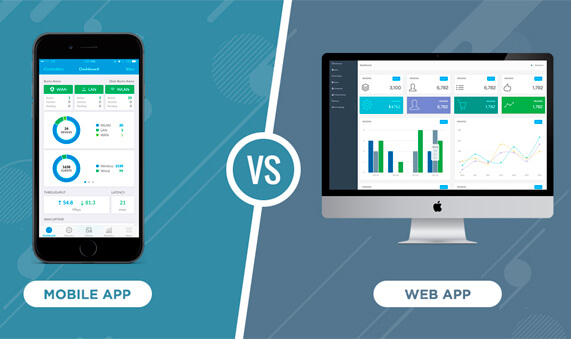
Mobile Apps and Web Apps: Which is better for startups?
When deciding between two choices, a simple pros and cons comparison is a good way to start with. Which one is better for your startup? To help you decide, listed below are the key advantages and disadvantages of both mobile and web apps –
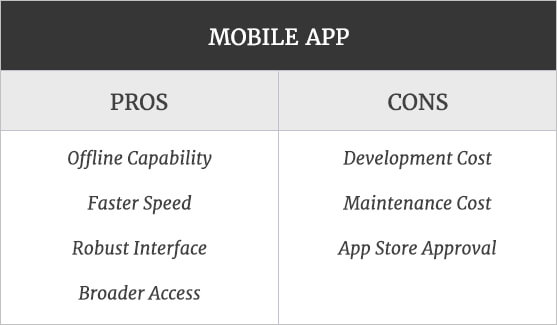
Pros of Mobile Apps:
- Offline Capability: can be used without an internet connection.
- Faster Speed: are faster as they access information quickly.
- Robust Interface: allow special gestures for intuitive user interface.
- Broader Access: can easily access hardware features like microphone, camera, accelerometer, etc.
Cons of Mobile Apps:
- Development Cost: cost more money for development.
- Maintenance Cost: incur higher maintenance cost.
- App Store Approval: need approval by the app store before they can be downloaded and used.
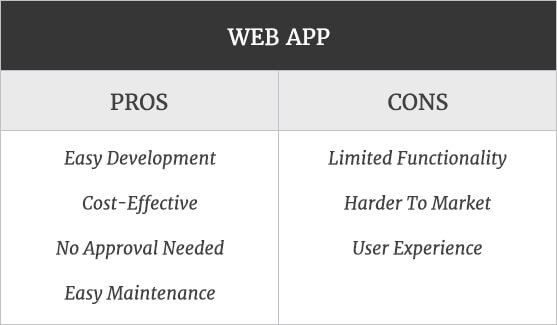
Pros of Web Apps:
- Easy Development: require less development resources.
- Cost-Effective: cheaper to develop.
- No Approval Needed: don’t require prior approval from App Stores.
- Easy Maintenance: don’t require constant updates and maintenance.
Cons of Web Apps:
- Limited Functionality: are not feature/functionality-rich.
- Harder to Market: cannot be promoted using app stores.
- User Experience: are rudimentary in their user experience.
In the beginning of our native vs web apps guide for startups, we promised to help you through the decision-making process.
If you have managed to read till here, congratulations! You’re now only one step away from making the right choice between mobile and web apps for your startup.
Ready to Build an App for your Startup? Read this before you begin!
Knowing the definition and the difference between a mobile and a web app isn’t enough, there are more important questions to be asked (and answered) here.
Whether you are building an in-house app or outsourcing it to a professional app development company, you should have clarity about three questions –
- ‘What’ is your startup doing or what is the product you are building?
- ‘Who’ is your target audience or who are your end-users?
- ‘How’ important is customer or user experience to your product?
Too much to think about?
Follow our simple, 3-step approach for finding the most suitable solution to your problem –
Step 1: The Product (What problem is your product solving and what value is it offering)
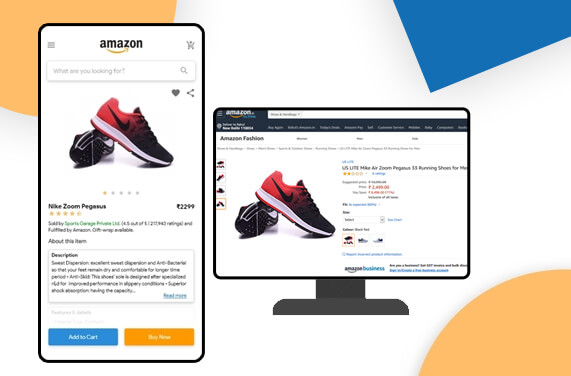
Your startup app will be based on your product.
Before building a mobile or a web app, every startup must be clear what is their product. The product you are selling as a startup will be the essence of your app.
For example, your product can improve on an existing app as an alternative or it can offer a completely new functionality or feature that doesn’t exist in the market yet.
In short, your product idea should be at the center of your startup app development strategy.
Step 2: The Audience (Who are your end-users)

Your app isn’t just going to be in your hands, ideally, it should be in the hands of your target users and audiences.
Who is your target audience? Are they millennials, baby boomers, Gen Z? Where are they located? How much time do they spend on their phones? All these are questions that you should have clear answers for.
For example, a photo editing app will have a different target audience and use case as compared to a to-do app or a task management app
In short, when choosing between mobile and web apps, keep the goals, needs and wants of your users first.
Step 3: The Experience (How important is the User Experience for your product)

Your app may be pretty and beautiful, but if it isn’t useful, it will not matter.
User experience (UX) is a key factor behind building successful apps to attract users, keep them engaged and ultimately, generate business revenue. Think about your product and how your target audience will engage with your app, how will it perform and how it will impact the user experience.
For example, building a mobile gaming app will require different UX skills than building a note-taking or a file sharing app.
In short, user experience should be an important factor to consider before choosing between a native mobile app or a web app.
In Conclusion
Pat yourself on the back for sticking around till the conclusion of this in-depth guide for choosing between mobile and web apps for your startup – you’re now better placed than when you first landed on this blog.
Ultimately, there’s no right or wrong way of app development for startups.
To conclude this guide, your choice should be based on considering a number of factors including –
- Your product (features, functions and value proposition)
- Your audience (users and their demographics, age, income, use cases)
- Your budget (app design, development, maintenance and marketing)
- Your business or revenue model (app monetization plan and strategy)
Making the right choice is easier, once you have clarity on the above aspects related to mobile app development. We hope it’ll be easier for you to make the right decision for your startup’s success.
Thank you for reading!
If you find this guide useful, feel free to share it with a startup founder you know. Like you, they can get value out of this and make an informed decision.
Ready to build your startup app in 2020?
As a leading app development company, we offer reliable solutions as well as rich insights to businesses and startups. With SunTec India, you can get easy and expert advice on UI/UX design, app development, and testing and deployment. Not only do you get to save up to 50% on your development cost, you also get to work with an expert team that cares for your goals.
If you are looking for a professional startup app development company to build your dream app, we’d be happy to extend our support – let’s get in touch to understand your requirements first.
Drop us an email at info@suntecindia.com and get a beautiful, responsive and custom made app for your startup.

